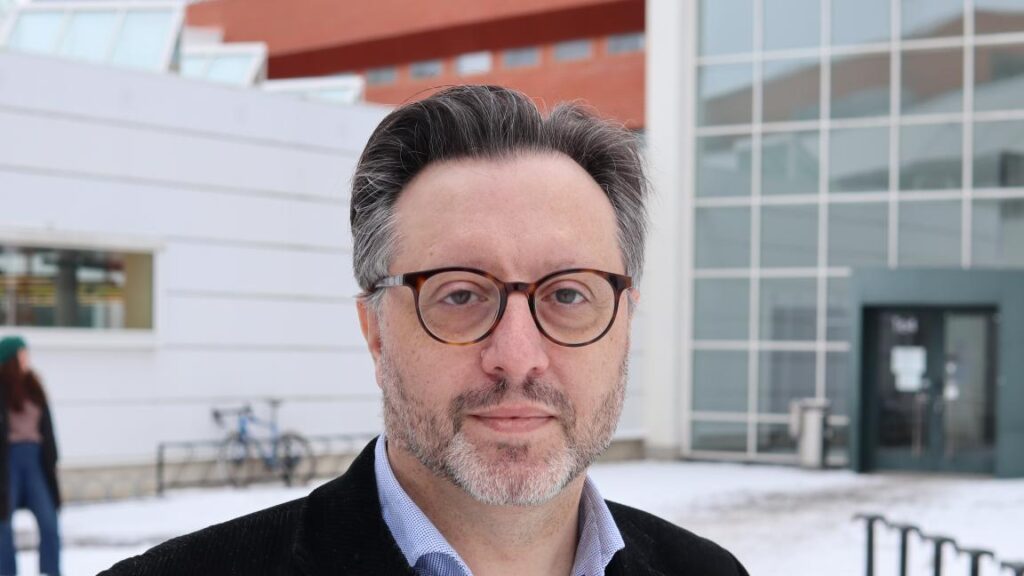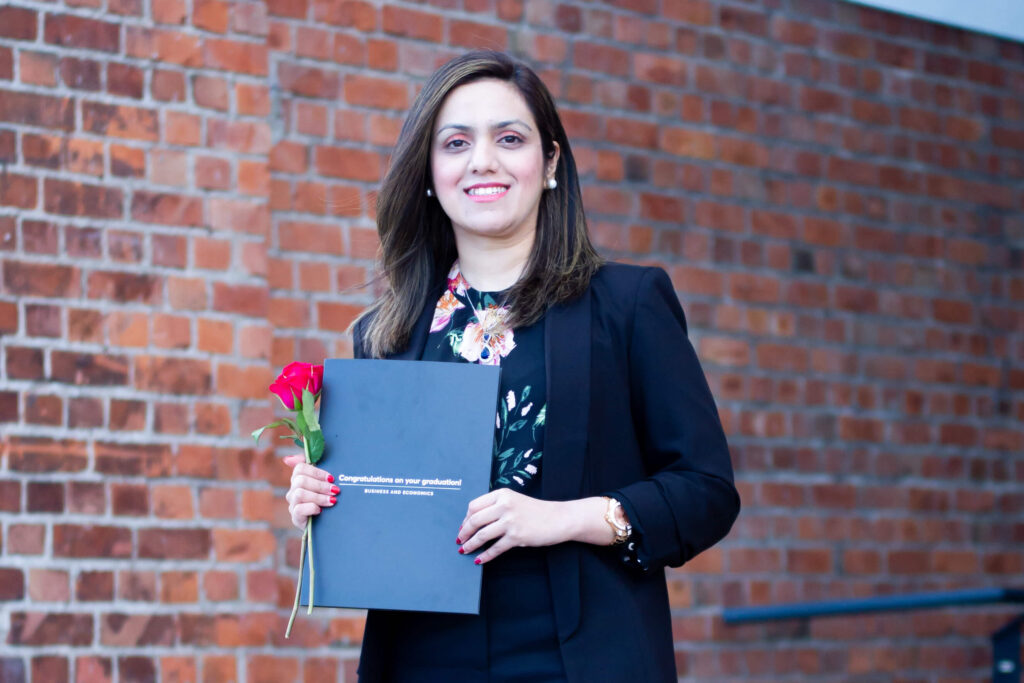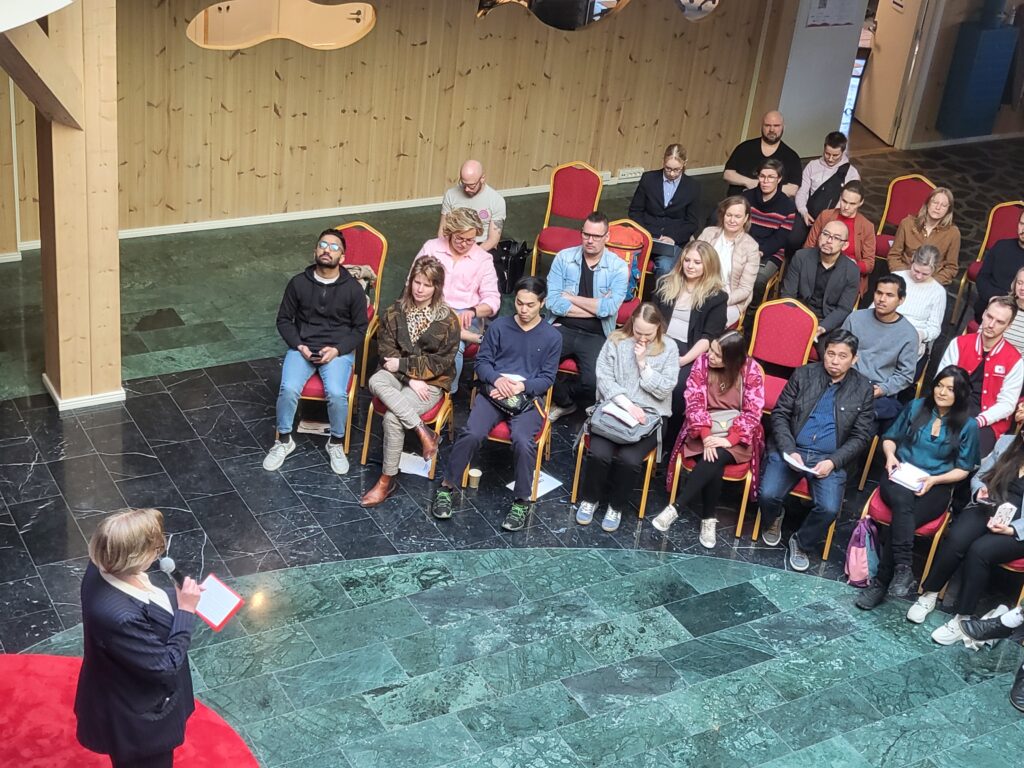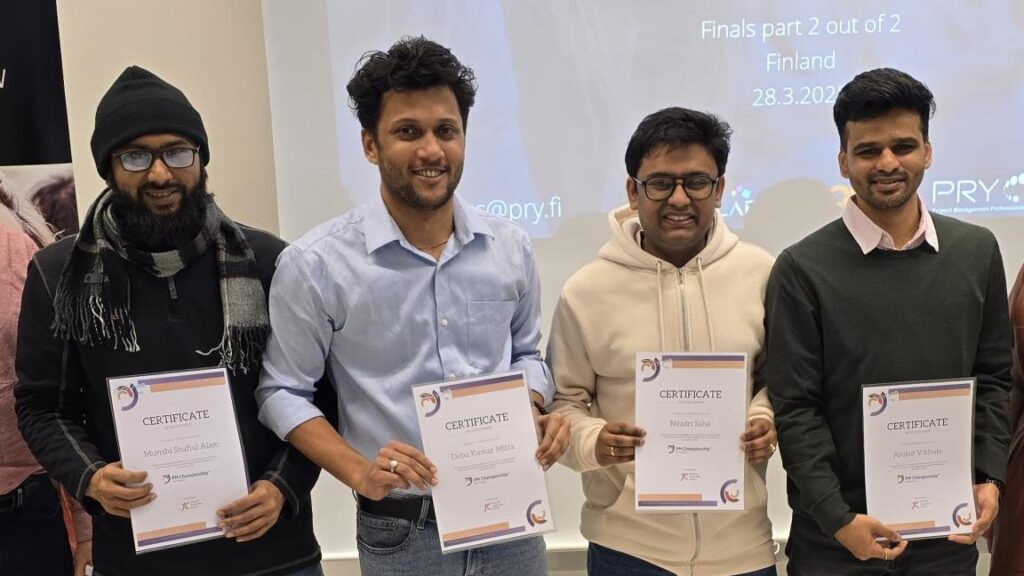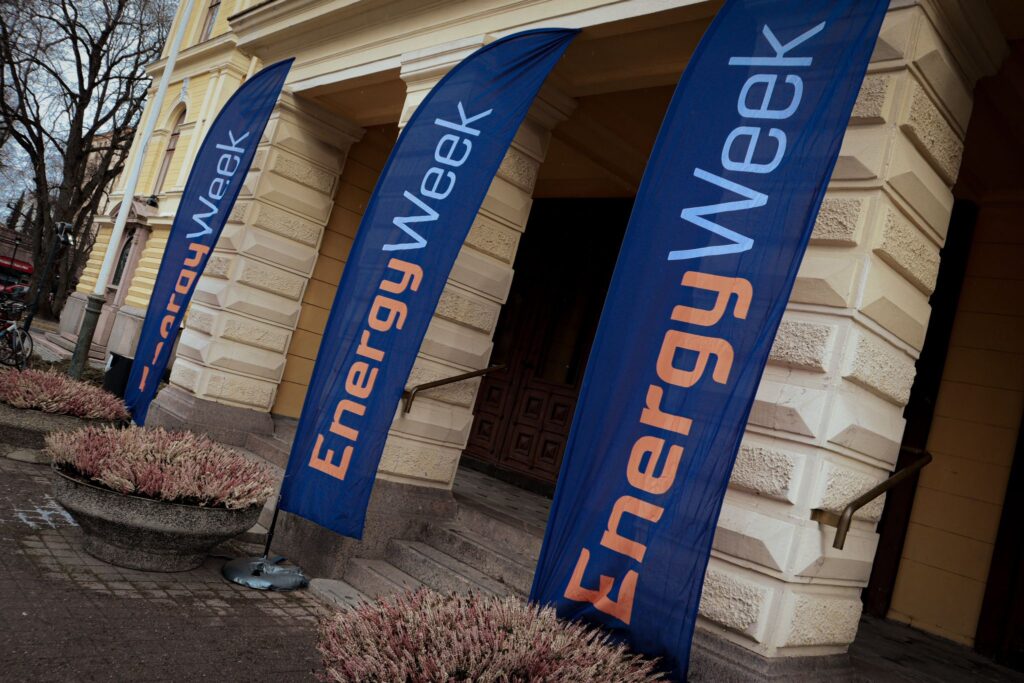Rodrigo Rabetino Sabugo, Doctor of Philosophy, has been appointed Professor of Strategic Management at the University of Vaasa. Born in Argentina, Rabetino has previously worked at the university as an Associate Professor and Programme Manager for the international master’s programme in Strategic Business Development. He is the first researcher to progress to a full professorship through the tenure track path at the University of Vaasa.
The tenure track process was demanding, but I was able to develop the competencies I needed to reach my career goal of professor. The support I received during the process and my dedication carried me all the way.
A demanding but rewarding process
Rodrigo Rabetino was appointed to the tenure track path in the autumn of 2018. The tenure track system offers a path for a researcher to progress to the position of full professor through regular evaluations. To succeed in the tenure track process, you need determination, support from the university and a lot of hard work.
Dean Adam Smale from the School of Management comments that Rodrigo Rabetino has “fulfilled all the set targets and excelled in his work, and he can be very proud of his achievements”.
It has been a rewarding process, and we are extremely proud to have Rodrigo on our team. Rodrigo is devoted to his work and has actively participated in cross-disciplinary research with faculty from our school and the VEBIC research platform.
Dr Rabetino’s research has focused mainly on business development, business models, servitisation and ecosystems. Societal interaction and cooperation with companies have been an essential part of Dr Rabetino’s research in securing funding and ensuring that his research makes a positive impact. This is something that he has been able to improve along his tenure track in cooperation with VEBIC. His current research focuses on business models, ecosystems, and market stakeholders in the energy sector.
If the battery factory projects are accepted, it is important to understand how new ecosystems could be created around the battery ecosystem. This would bring more business to the region. Sustainability is essential in battery production – what you do with used batteries, for example.
From Argentina through Spain to Finland
Rodrigo Rabetino originally studied economics and worked at a research institute in Argentina. The major debt crisis in Argentina at the turn of the century motivated him to apply for a doctoral programme in entrepreneurship and SME management at the Universitat Autònoma de Barcelona in Spain, where he obtained first a licentiate and then a doctorate.
In the middle of his postgraduate studies, he transferred from researching entrepreneurship to adjunct professor of strategic management. After his doctorate, he went to work for a multinational consultancy firm, helping regions and cities develop their strategies.
My wife suggested we move to her home country, Finland, when our son was born. At the time of his birth, people did not have much parental leave in Spain, and the social benefits in Finland were more appealing.
The move from Barcelona to Vaasa was quick.
“The interview was held online in February, and we were already in Finland within a month,” Rodrigo Rabetino says.
Important university ambassadors
Rodrigo Rabetino notes that international students and researchers act as ambassadors for the University of Vaasa.
For example, I am part of a group of Argentinean academics meeting regularly at the Argentinean embassy. We have very close contacts with Team Finland, and we help them when they want to find talented people who would like to come to work in Finland. I have also helped some of the university’s regional science projects to find partners in Latin America.
What is a tenure track?
One type of research-oriented position in the university’s career model is the tenure track position. A faculty member appointed to this position can advance to the next career stage if they receive a positive evaluation by the tenure track committee.
The assessment is based on the tenure track candidate’s performance against the criteria for the position in question and evaluations by the candidate’s superior(s). A candidate’s performance and merits are assessed in scientific research, teaching, activities in the scientific community, and societal impact.
Based on the candidate’s experience and competence, they will primarily be hired as assistant professors or associate professors for a fixed term. A person fulfilling all qualification requirements and demonstrating particular merit may be appointed directly to the position of professor.

